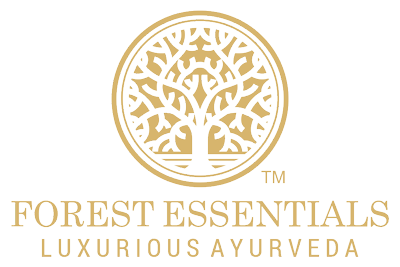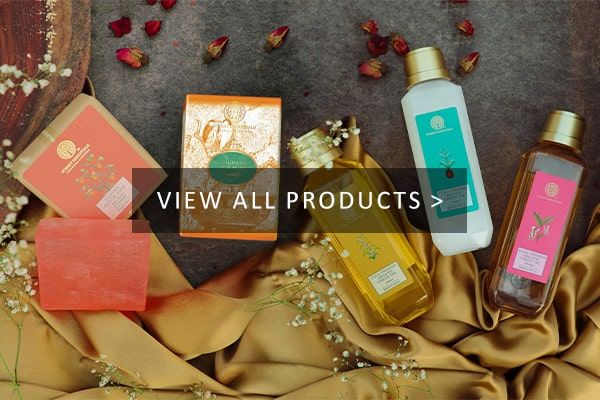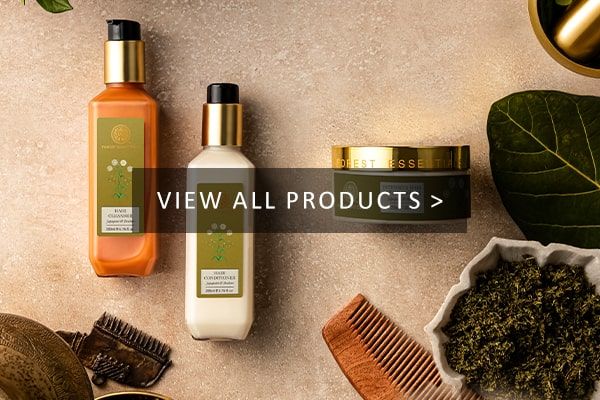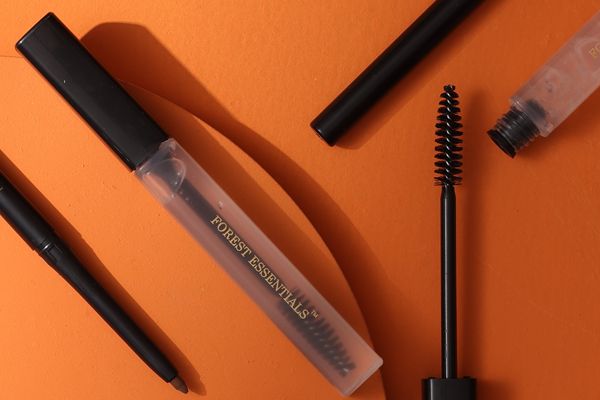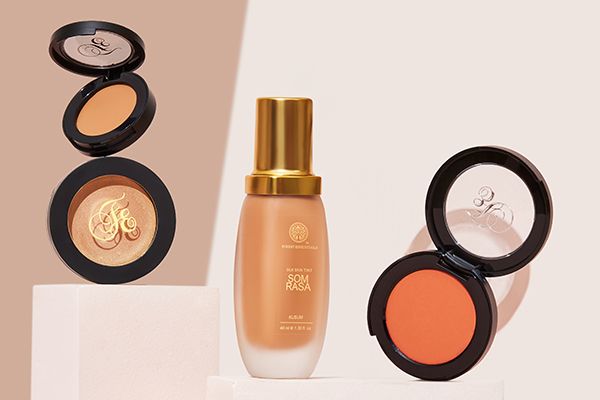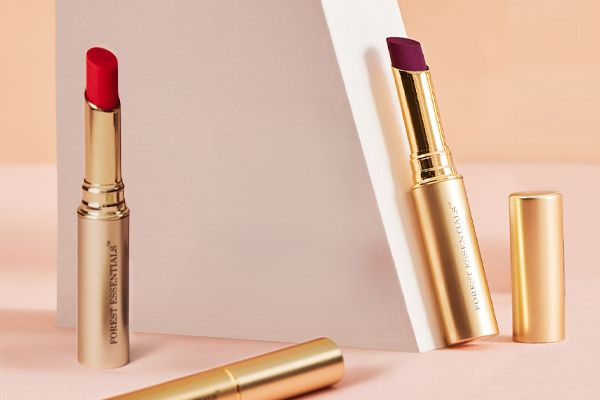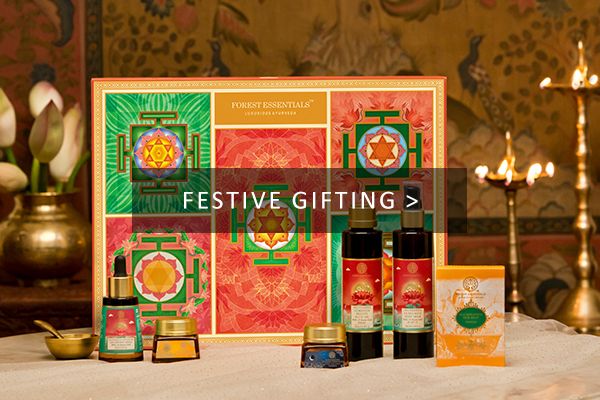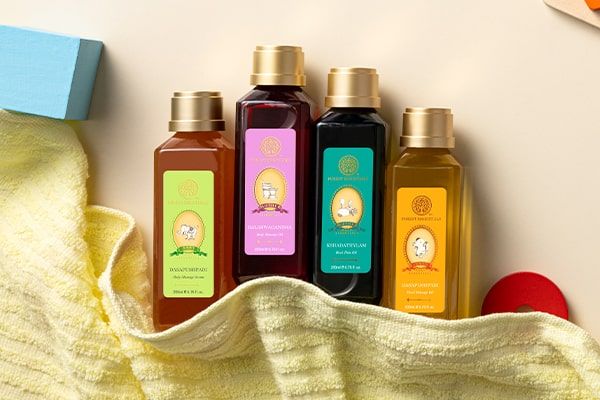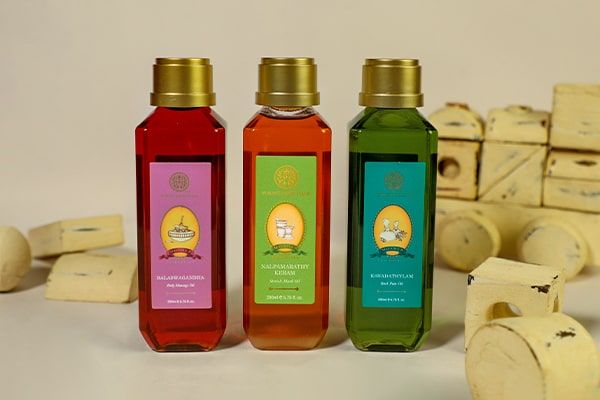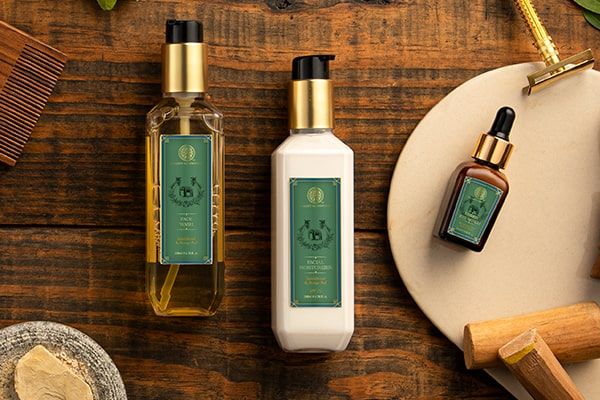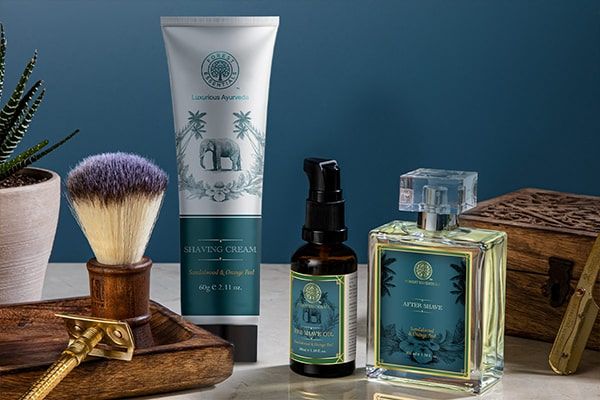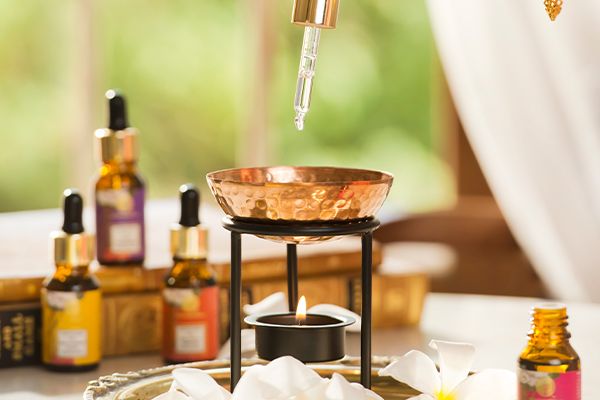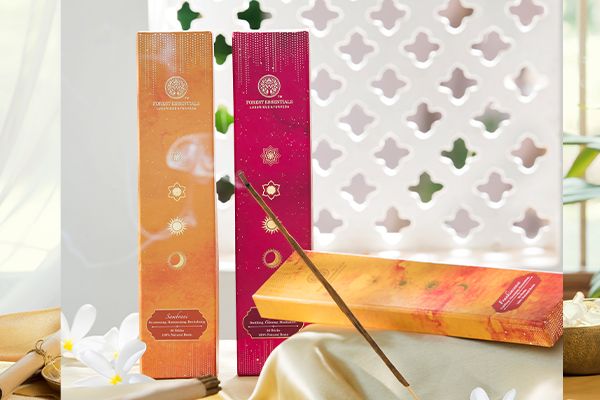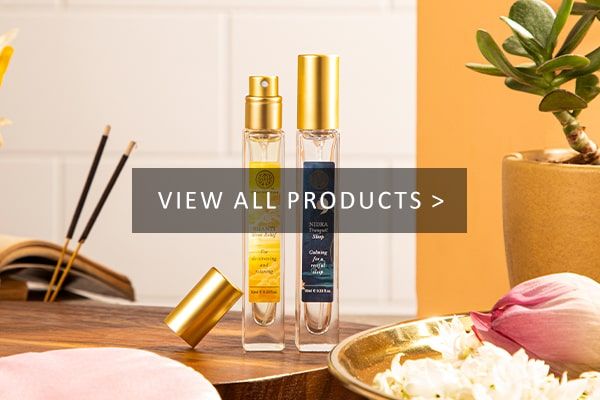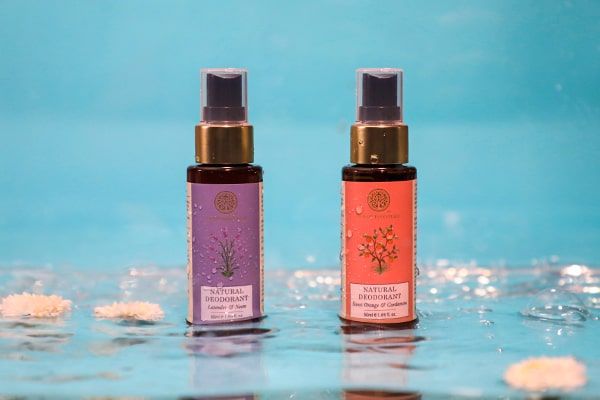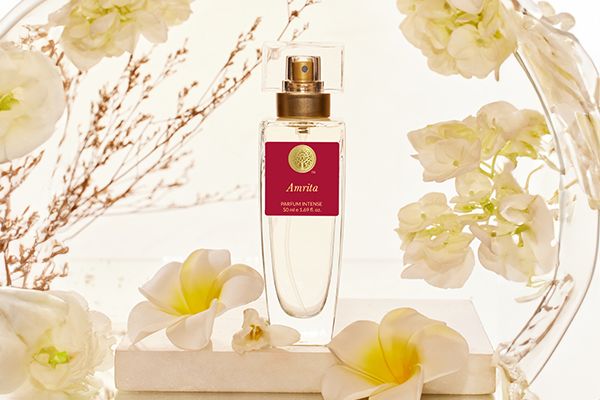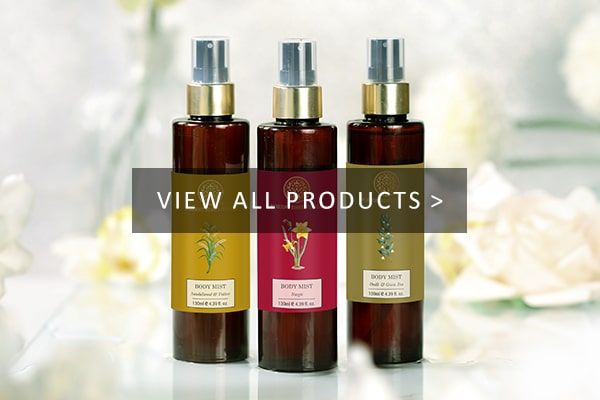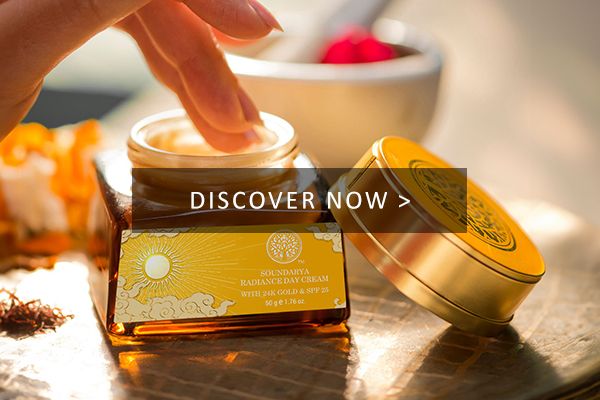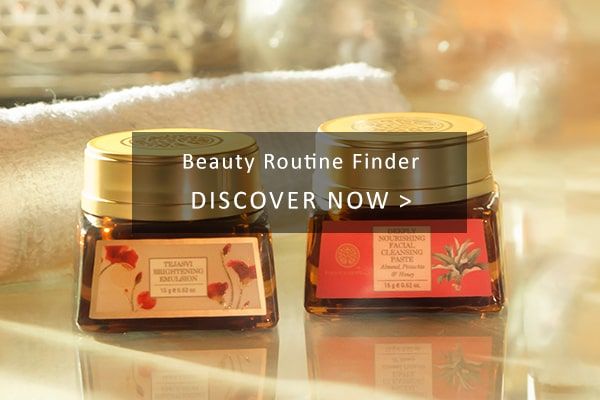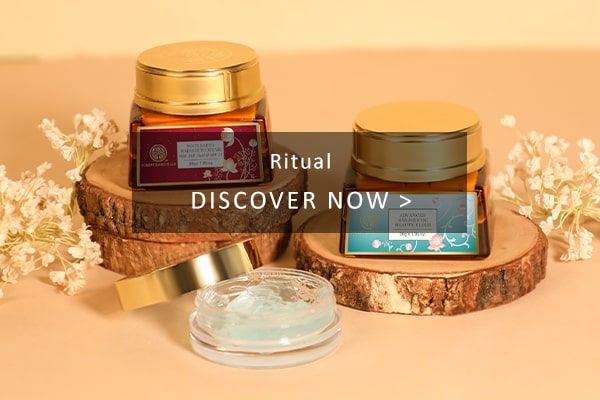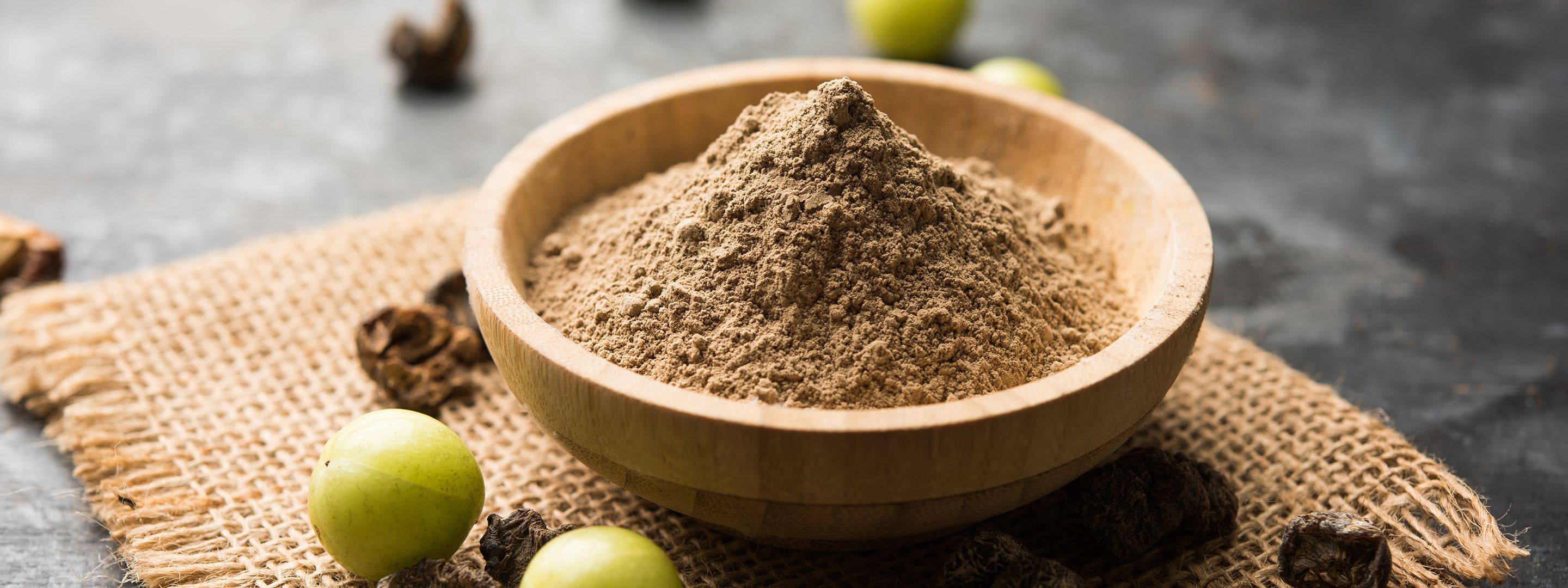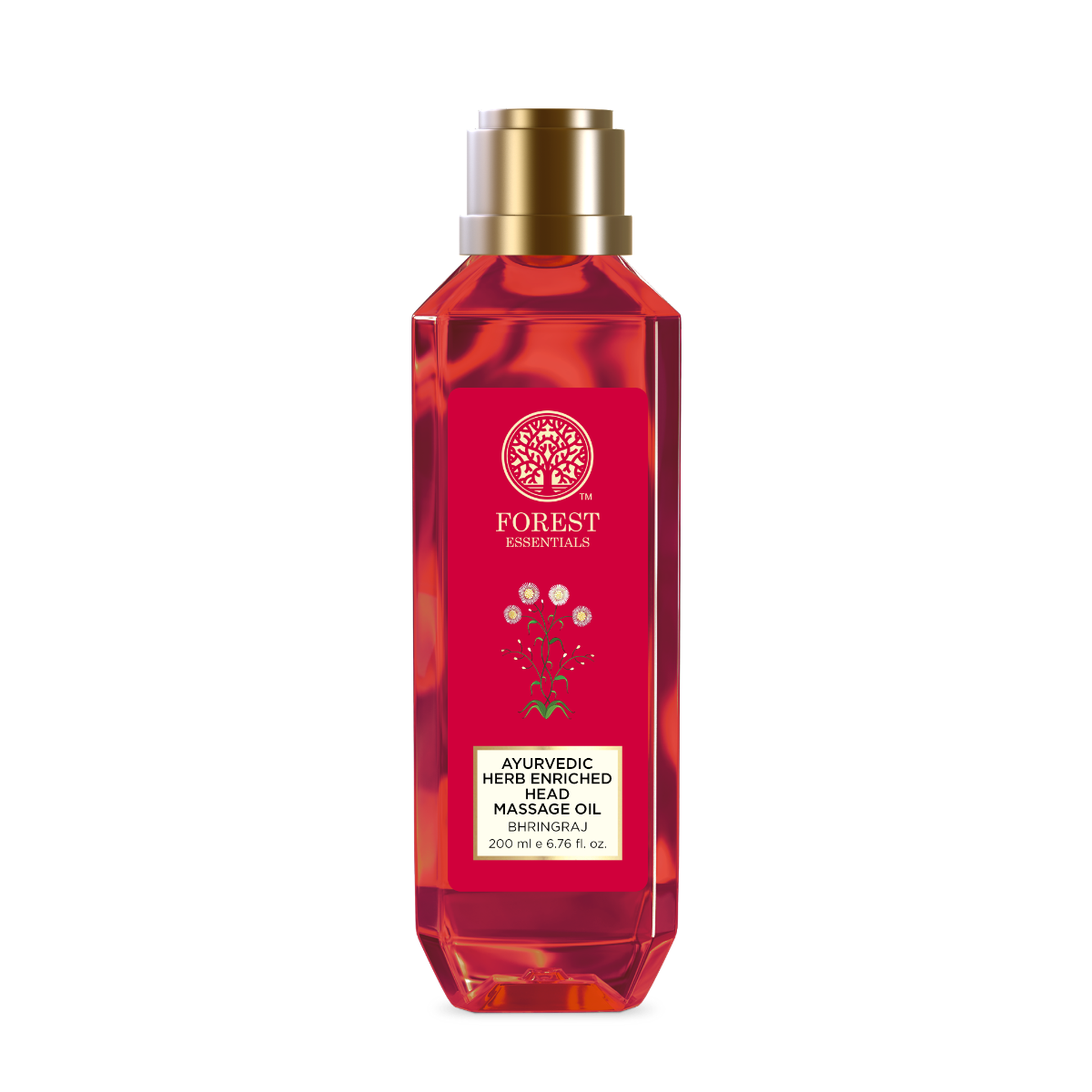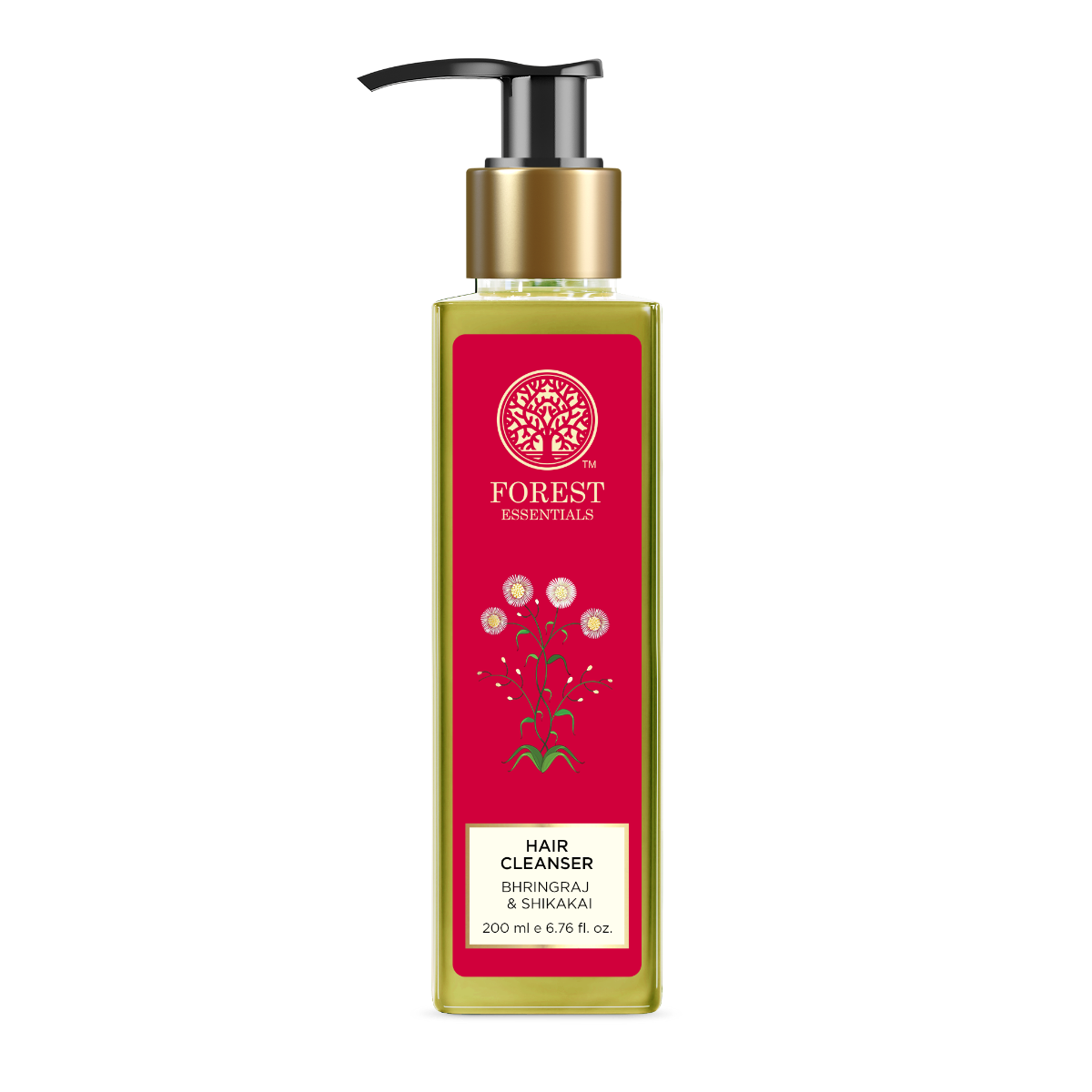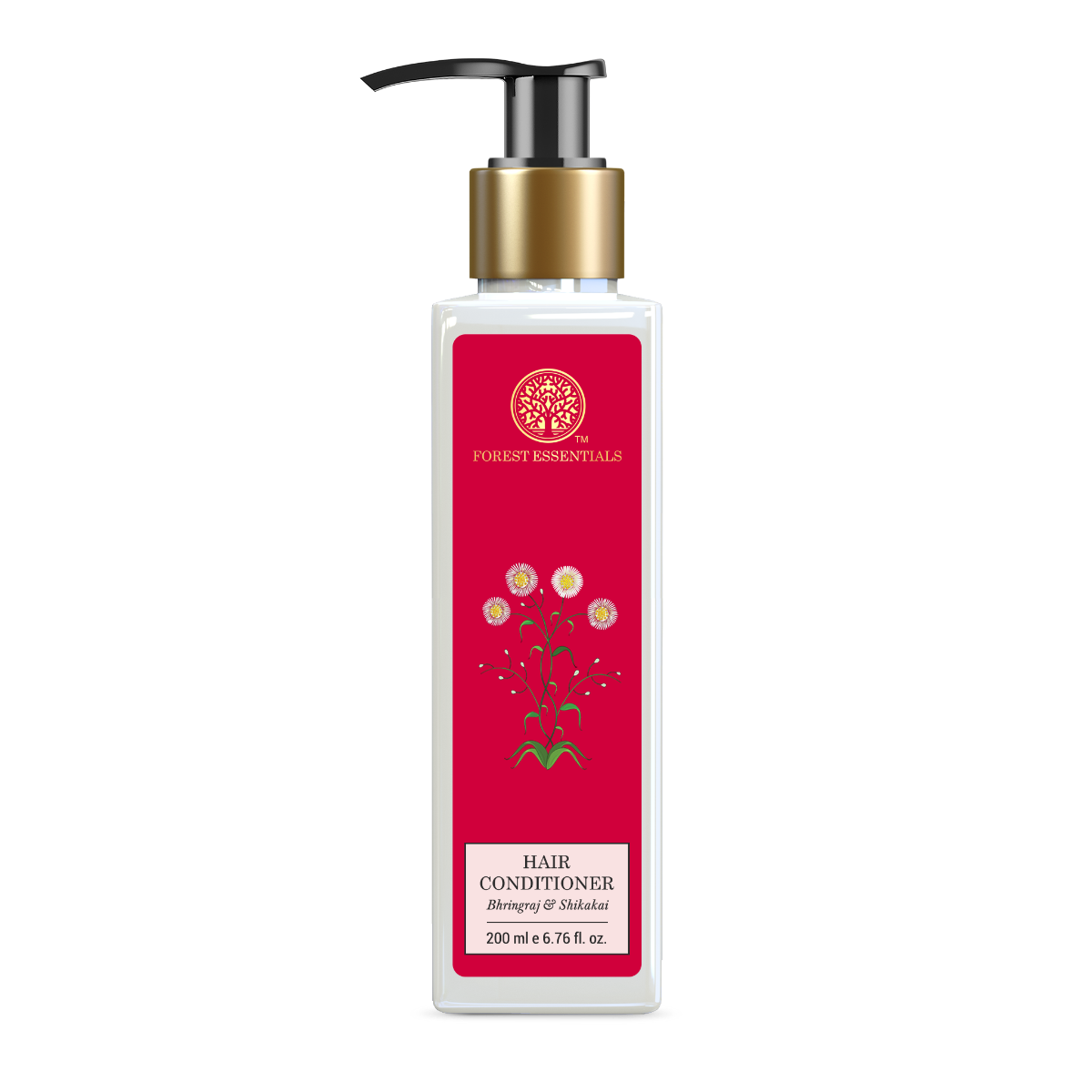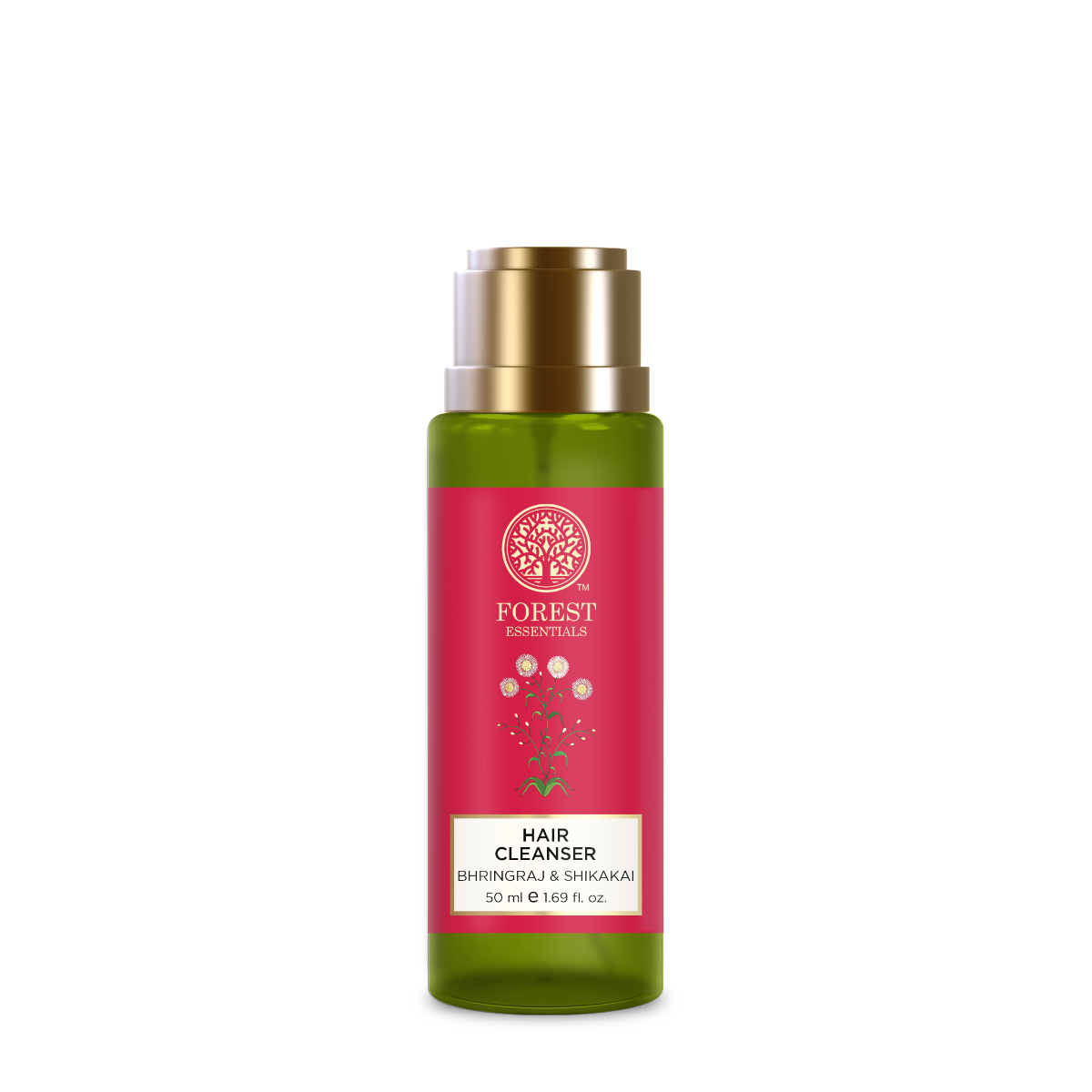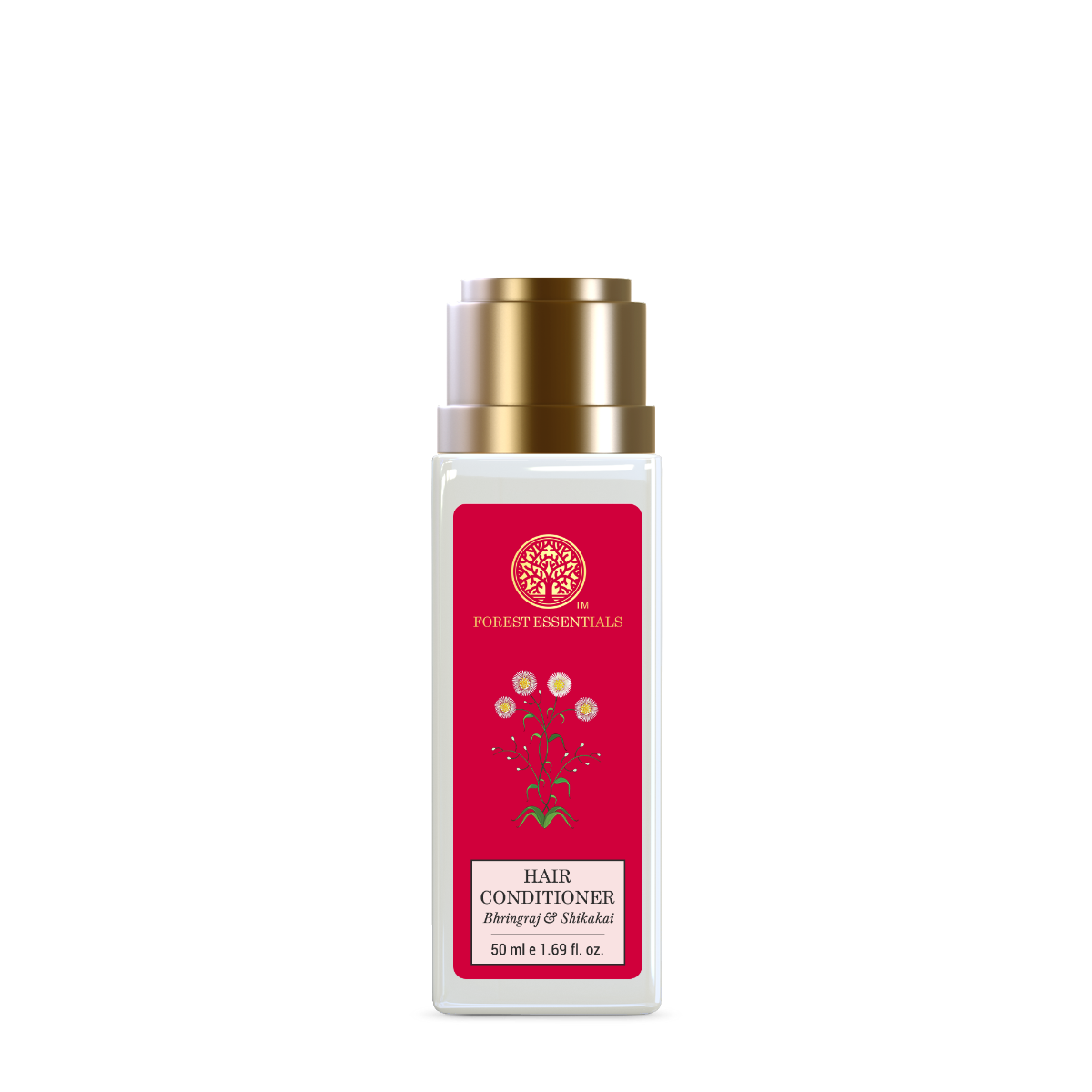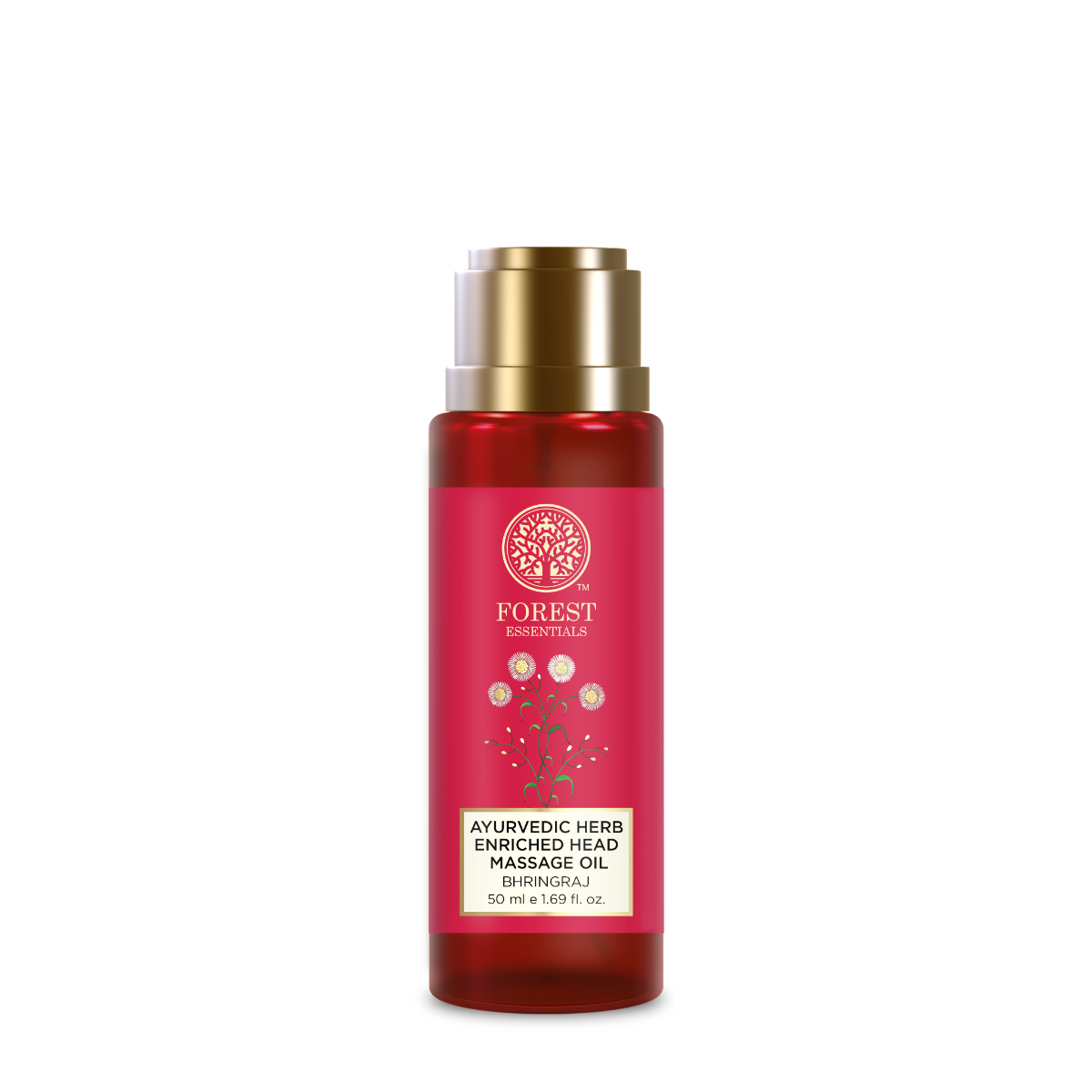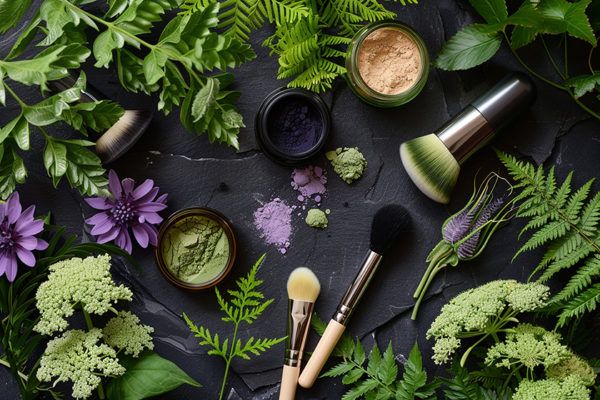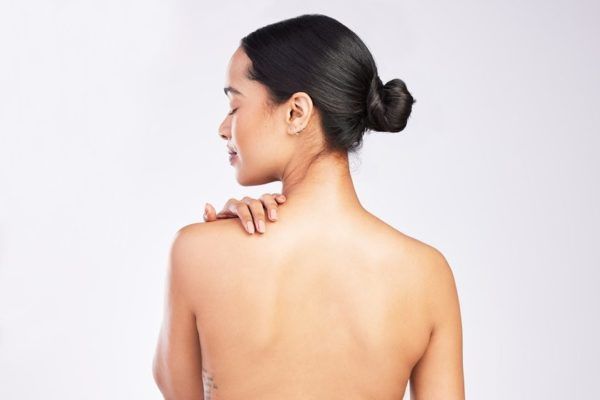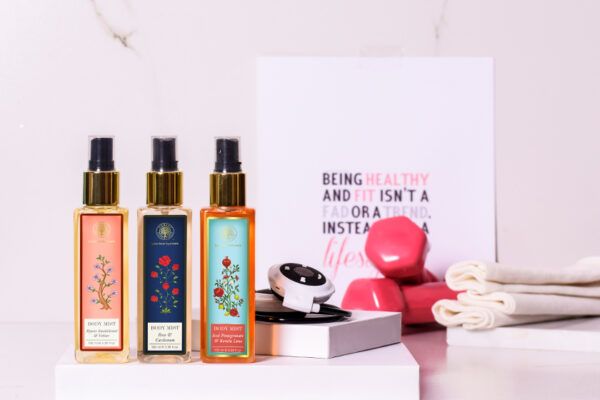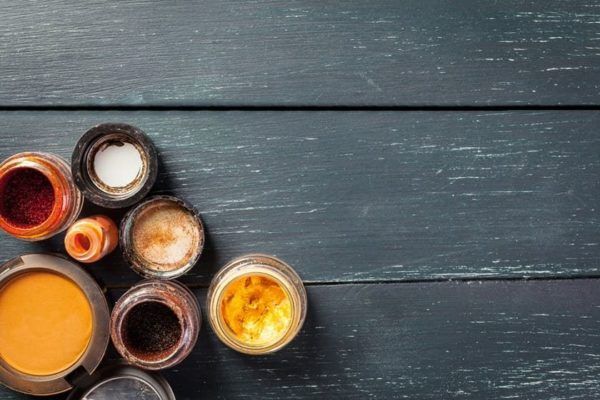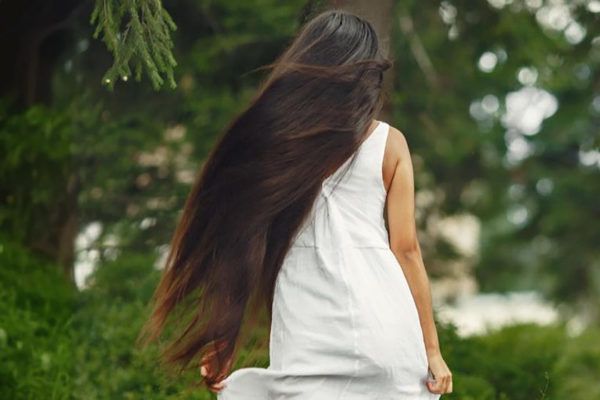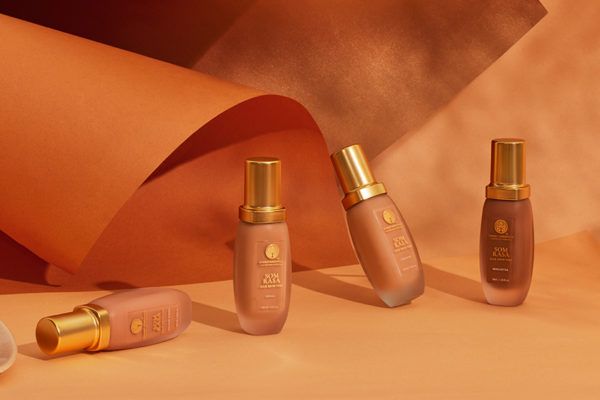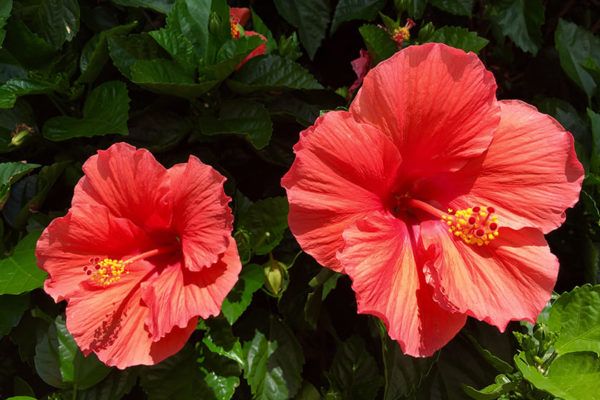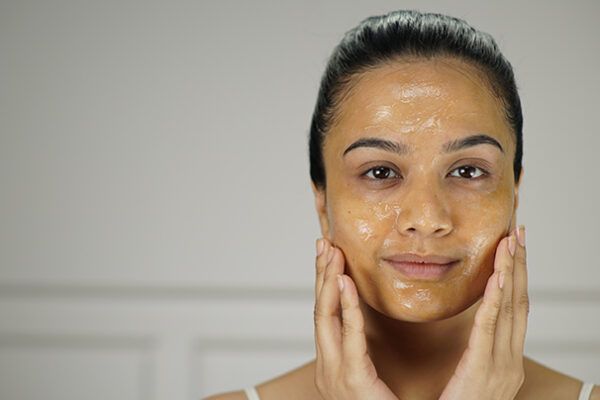Introduction
As the cold and chilly months begin to set foot, the genuine fear of getting dry and dehydrated skin starts to arise, along with the dreaded D-word – dandruff! Irrespective of what season it might be, what age group or gender a person might belong to, dandruff (for some) is a serious yearlong problem that can have detrimental effects on their psyche and skin. So, if you’re one of those people suffering from dandruff, don’t worry, we have you covered if you have any questions on how to remove dandruff?

Ayurveda has a cure for every skincare concern and dandruff is no exception.
A more than 6,000 year-old-science documented in the Vedas, Ayurveda is a holistic healing system that has many home remedies and sustainable practices for controlling dandruff. In this blog, we present you with natural remedies and solutions to eradicate this concern.
What is dandruff?
Essentially, dandruff occurs when small pieces of dry skin start flaking off your scalp because it starts overproducing oil. As the layers of the skin continuously replace themselves, cells are pushed outwards where they die and start to flake off. It’s more than likely that this phenomenon is happening in other parts of your body as well. Skin starts to feel dry, coarse, itchy and in some extreme cases, red and bruised as well. (1)
When dandruff progresses from a milder to a much more extreme form, it can cause the skin cells to multiply more quickly than usual, which results in heavier flakes, persistent itching, and more noticeable inflammation. (2)
What causes dandruff?
Some basic causes that one should factor in to know why they suffer from the dandruff are:
- Bad shampooing habits: Infrequent washing of hair can worsen the dandruff condition as it leads to an excess build-up of oil, dust, grime — and dead skin cells.
- Contact Dermatitis: Skin irritation caused by an allergen or an irritant, resulting in an itchy and painful rash is called Contact Dermatitis. And in the case of dandruff, that reaction occurs on the scalp. This usually happens due to chemicals from a hair care product that you come in contact with. (3)
- Dry skin: During winters, the skin tends to get dry faster as humidity in the airdrops and it can also lead to dandruff (in which flakes are usually smaller and less oily). (4)
- Sex: Androgen hormones such as testosterone stimulate activity in the sebaceous glands — and more activity means an increased chance of an inflammatory reaction and dandruff. Dandruff affects men more frequently as compared to women. (5)
Ayurvedic herbs recommended for dandruff
Since time immemorial, Ayurvedic medicine is based on three Doshas namely, Vata, Pitta and Kapha. An imbalance in any three of these Doshas may lead to numerous skin problems — and haircare problems generally occur due to an aggravated Pitta Dosha. Medicinal botanicals have played a pivotal role in Ayurveda as they offer potent remedies for various kinds of ailments and concerns. These are derived from the roots, barks, stems, flowers, fruits and resins of the plants and trees — and used to prepare herbal medications and remedies.
Some of these herbs recommended for anti-dandruff treatment are:
- Bhringraj: Also known as the ‘King of Herbs’, Bhringraj or False Daisy has the ability to support strong, lustrous and healthy locks and prevent premature greying. Its antimicrobial and antifungal properties reduce dandruff and eliminate skin irritations on the scalp whilst also improving the scalp’s blood circulation. (6)

- Shikakai: Known as ‘Fruit of the Hair’, Shikakai is a cherished herb in India used to effectively treat hair growth issues and dandruff. Applying Shikakai regularly helps remove excess oil from the scalp due to its ability to cleanse without irritating the scalp. (7)

- Neem: Ancient Ayurvedic texts describe Neem as a universal healer or a cure for all diseases and ailments. Its various elements like leaves, seeds and barks are used for many medicinal and beauty remedies for troubled skin. Its antifungal properties make it a dandruff-reliever as it helps reduce inflammation, irritation and itchiness on the scalp.

- Tea Tree: Oil extracted from the Tea Tree has antimicrobial properties that help reduce the severity and symptoms of dandruff. It also effectively fights the strains of fungus that causes dermatitis and flaky scalp.

Some hair care tips to avoid dandruff
- Begin with oiling: In order to achieve a healthy, strengthened and dandruff-free scalp, it’s very important to apply oil to your hair because if done regularly, oiling protects your hair from harsh outer radicals and helps fill the gap between hair cuticles.
We recommend using the Forest Essentials Ayurvedic Herb Enriched Head Massage Oil Bhringraj as it uses the finest cold-pressed Ayurvedic herbs that minimize dandruff by arresting hair loss and promoting the growth of new, healthy hair.

- Follow with cleansing: Your skin and your hair are affected by the constant change in the air’s moisture levels, especially during the winter season. Therefore, it is imperative to wash your hair and your scalp to reduce the build-up which can cause excess sebum production, dead skin cells, redness and flakiness. A hair cleanser or shampoo, for anti-dandruff treatment, does just that by gently removing impurities, dead skin cells and sweat build-up from the scalp while keeping the skin’s moisture levels intact.
We recommend using the Forest Essentials Hair Cleanser Bhringraj & Shikakai as its nutrient-rich content of potent herbs and botanicals helps control hair thinning, breakage and promotes regrowth. Bhringraj (also known as ‘food for hair’ in Ayurveda) helps in premature greying while Shikakai and Liquorice extract control dandruff – without stripping the scalp and hair of its natural oils.

- Finish with a conditioner: Usually used after applying shampoo, a conditioner is jam-packed with rich humectants and oils that make your hair soft, flexible and voluminous. Dry and damaged hair can be static because it has a negative charge and the ingredients packed in the conditioner have a positive charge, clinging to the hair and making it less static.
We recommend using the SLS/SLES and Paraben-free Forest Essentials Hair Conditioner Bhringraj & Shikakai as it is enriched with organic extracts of Coconut Milk, Liquorice, Bhringraj and Shikakai. This Ayurvedic hair conditioner works for intense nourishment and repair of the hair while also detangling and volumizing it.

Steps to wash your hair
- Step 1: Using the double-boiler technique, pour a small amount of the oil into a container and then immerse it in a bowl of hot water. This ensures that the oil gets heated indirectly – maintaining its efficacy. Massage directly onto the hair and scalp. Leave the hair, preferably wrapped in a hot towel, for about 30 minutes. Should be ideally used twice a week.
- Step 2: Take a small amount of the cleanser, dilute it in water, and massage it into a wet scalp and hair for one to two minutes. Repeat this process again, when using a head massage oil prior to this as they might come off completely in the first wash. Rinse well till water runs clear. Should be used two-three times a week.
- Step 3: Take a small amount of the conditioner in your palms and spread it evenly on the ends of your hair. Remember not to apply it to the scalp. Run your fingers through the ends of the hair to work in the conditioner. Leave it on for two-three minutes. Rinse well till water runs clear. Should be used after shampooing.

Nine home remedies for dandruff
Some home remedies to get rid of dandruff include –
- Remedy 1: Take around 10-15 Neem leaves, add them to boiling water and leave it overnight. You can then grind this to make a fine paste, and add 1-2 tablespoons of Yoghurt into it. Apply this hair pack for 30 minutes and then wash it off. Regular usage of Neem Leaves on your hair will disinfect the dandruff-causing fungus on your hair and scalp.
- Remedy 2: Mix 2 Egg Whites in a small jar or a container with freshly-squeezed juice of 1 Lime. Mix together well and apply it to your hair. Leave the hair to rest for 30 minutes. Wash your hair thoroughly with a mild Ayurvedic cleanser. The Egg White will provide your hair and scalp with the necessary (and lacking) protein, whilst Vitamin C from the Lime will boost the scalp’s circulation levels.
- Remedy 3: Take 2 tablespoons of Baking Soda Powder and directly apply it to wet hair, whilst gently massaging it in circular motions. Let it sit for 2-3 minutes, then rinse it off with a gentle hair cleanser. Used as a mild exfoliant, Baking Soda Powder eliminates the build-up of excess dead cells from the scalp’s surface whilst reducing itchiness and inflammation — making it the go-to natural scalp treatment for dandruff.
- Remedy 4: In a bowl, mix equal tablespoons of Organic Amla Powder with water to form a thin paste. To this, add a paste of 8-10 ground Tulsi leaves with water. Generously apply this paste onto your scalp and leave it to rest for 30 minutes. Wash it off with a mild hair cleanser. The Vitamin C-rich content of Amla and antibacterial properties of Tulsi help combat dandruff.
- Remedy 5: Soak 2 tablespoons of Fenugreek seeds in a bowl of water and leave it to rest overnight. With the help of a blender, blend the soaked Fenugreek seeds in the morning to form a fine, thin paste. To this paste, add a tablespoon of Lemon juice. Mix well and apply it to your scalp and hair ends. Leave it on for 30 minutes and wash it off with a mild hair cleanser of your choice. Regular usage of this hair mask will help revive your scalp’s health — and prevent hair fall and dandruff.
- Remedy 6: Mix 2-3 tablespoons of Apple Cider Vinegar with equal amounts of water. Apply this mixture onto your scalp and hair, letting it sit for 3-5 minutes afterwards. Gently wash your hair with a mild hair cleanser. The regular usage of Apple Cider Vinegar balances the scalp’s natural pH level and helps minimise dandruff. (8)
- Remedy 7: Soak 5-6 Reetha pods, 6-7 pieces of Shikakai, and 2-3 pieces of Amla in a bowl of water overnight. Heat the mixture, on a low flame, until it comes to a boil. Turn off the heat and allow the mixture to cool. Now blend the mixture in a blender and strain it via a cotton muslin cloth. Use this liquid as a shampoo to cleanse your hair. Follow with a nourishing conditioner of your choice. The rich Vitamin C properties of this mixture — along with the gentle cleansing properties of Reetha — help eradicate the scalp of infection-causing microbes and bacteria.
- Remedy 8: Pound 4-5 cloves of Garlic in a pestle and mortar and mix it into a bowl of water. To this, add 1 tablespoon of Organic Honey and 1 teaspoon of Ginger powder. Apply all of this mixture to your scalp and leave it on for 5-7 minutes. Wash it off with a mild hair cleanser. The antifungal properties of Garlic make it an apt household ingredient to alleviate any existing dandruff and dandruff-causing bacteria.
- Remedy 9: Mix 5-10 drops of Tea Tree Oil with 5 tablespoons of Virgin Coconut Oil in a bowl. Apply this nurturing mixture to your scalp and hair and leave it on for 30 minutes. Wash it off with a mild hair cleanser. Known to effectively hydrate and moisturise the skin, Coconut Oil helps fight fungi and its antimicrobial properties also help fight eczema.
We recommend using the Forest Essentials Organic Cold Pressed Virgin Oil Coconut as it is extracted from the freshly-grated white flesh of strictly graded, high-quality Coconuts to procure the richest extract. Regular application of this oil helps deeply condition and nourish the hair, hair follicles and scalp.

Conclusion
In this blog, we’ve learnt that dandruff and an itchy scalp can cause severe discomfort. However, don’t worry, it’s curable with simple and effective home remedies, easy hair care tips and Ayurvedic treatments. And by following a gentle and natural hair care routine, you may even be able to say goodbye to your hair complaints. So get going and get started!
FAQs
How to remove dandruff?
To help reduce dandruff, incorporate the three basic steps in your hair care routine – heat an Ayurvedic head massage oil using the double-boiler method and apply it generously onto the scalp and hair; leave it on for 30 minutes and gently wash it off with a mild SLS/SLES and Paraben-free hair cleanser; & finish by applying a nourishing conditioner of your choice.
How do you get rid of dandruff quickly?
Though there is no magical solution to quickly eliminate dandruff, the best dandruff treatment involves incorporating a good and natural hair care routine — including regular oiling, cleansing and conditioning — which can lead to improved results. Use SLS/SLES-free products only.
Can Lemon remove dandruff?
Lemon has been known to effectively reduce dandruff as it is rich in Vitamin C and Citric Acid, which fight off dandruff-causing bacteria and also curb the fungal activity happening on your scalp.
References
- https://www.everydayhealth.com/dandruff/guide/
- https://www.byrdie.com/dandruff-vs-dry-scalp-5074862#citation-4
- https://www.healthline.com/health/contact-dermatitis#_noHeaderPrefixedContent
- https://www.pihhealth.org/wellness/articles/the-facts-about-dandruff/
- https://www.ncbi.nlm.nih.gov/pmc/articles/PMC4852869/
- https://www.healthline.com/health/bhringraj-oil#for-hair
- https://www.1mg.com/ayurveda/shikakai-153
- https://www.healthline.com/health/apple-cider-vinegar-dandruff
